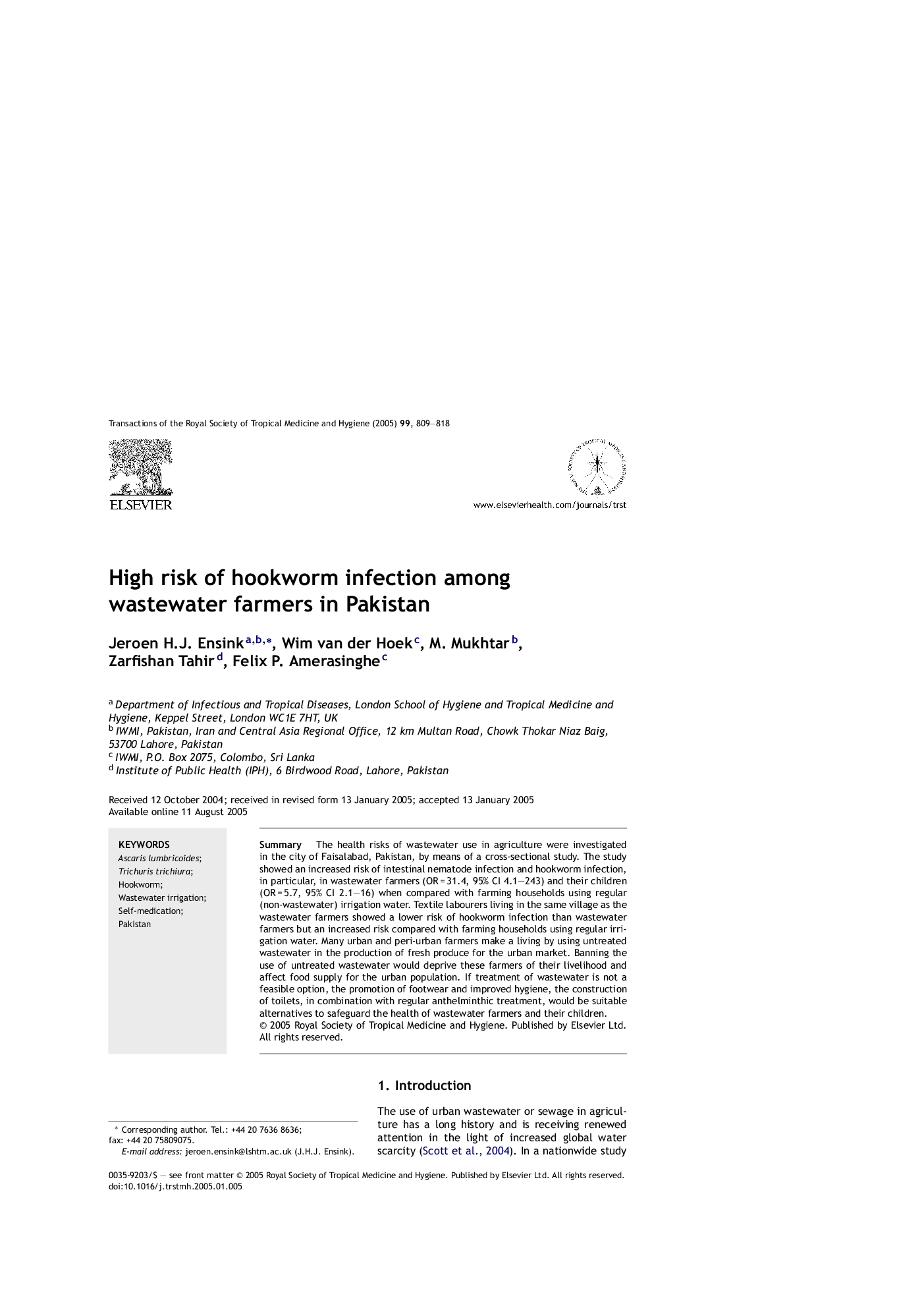| Article ID | Journal | Published Year | Pages | File Type |
|---|---|---|---|---|
| 10030500 | Transactions of the Royal Society of Tropical Medicine and Hygiene | 2005 | 10 Pages |
Abstract
The health risks of wastewater use in agriculture were investigated in the city of Faisalabad, Pakistan, by means of a cross-sectional study. The study showed an increased risk of intestinal nematode infection and hookworm infection, in particular, in wastewater farmers (ORÂ =Â 31.4, 95% CI 4.1-243) and their children (ORÂ =Â 5.7, 95% CI 2.1-16) when compared with farming households using regular (non-wastewater) irrigation water. Textile labourers living in the same village as the wastewater farmers showed a lower risk of hookworm infection than wastewater farmers but an increased risk compared with farming households using regular irrigation water. Many urban and peri-urban farmers make a living by using untreated wastewater in the production of fresh produce for the urban market. Banning the use of untreated wastewater would deprive these farmers of their livelihood and affect food supply for the urban population. If treatment of wastewater is not a feasible option, the promotion of footwear and improved hygiene, the construction of toilets, in combination with regular anthelminthic treatment, would be suitable alternatives to safeguard the health of wastewater farmers and their children.
Keywords
Related Topics
Life Sciences
Immunology and Microbiology
Applied Microbiology and Biotechnology
Authors
Jeroen H.J. Ensink, Wim van der Hoek, M. Mukhtar, Zarfishan Tahir, Felix P. Amerasinghe,
